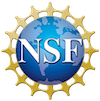|
Institution
Carnegie Institution for Science Open Date June 8, 2022 Location Stanford, CA, USA Description We are looking for a talented recent graduate to work as a Research Assistant (RA) in the laboratory of Dr. Sue Rhee at the Carnegie Institution for Science, Department of Plant Biology, located in Stanford, California. Our lab is generally interested in uncovering the molecular mechanisms of plant adaptation to environmental stresses. We work with different organisms ranging from model plant Arabidopsis thaliana to economically important crops such as Sorghum bicolor, an economically important bioenergy crop. We are looking for RA to work on the Sorghum Metabolic Atlas project. Our goal is to create a high-resolution cellular map of sorghum metabolic enzymes through deciphering enzyme localization within the cell. Information about enzyme localization contributes to the current understanding of enzyme functions and metabolic networks. We use a variety of cellular and molecular biology techniques to identify enzyme subcellular localization. The RA will be assisting a postdoc to scale up the scope of this project by conducting enzyme localization experiments from start-to-finish, which includes growing and maintaining plants, Gateway cloning to generate destination vectors, transient expression of enzymes followed by identifying localization through confocal microscopy. We are looking for a highly motivated, organized and experienced recent graduate with a BS or BA degree in biology, cellular and molecular biology or related fields. The position is particularly relevant for students seeking more laboratory research experience before applying to graduate school. Experience in basic molecular biology techniques, including but not limited to, PCR amplification, cloning, plasmid isolation, and bacterial transformation is required. Knowledge about plant transient transformation is a plus. Previous experience in growing and maintaining plants is recommended. Institution
University of Manitoba Open Date June 1, 2022 Close Date July 1, 2022 Location Winnipeg, Manitoba, Canada Description The University of Manitoba invites a world leading researcher to be nominated for a prestigious Canada Excellence Research Chairs (CERC) in the 2022 Competition. The CERC program was developed to recruit top researchers in Science, Technology, and Innovation (ST&I) priority areas to strengthen Canada’s research and training capacities. CERCs are among the largest awards granted in Canada, providing Chairholders and their teams with 8 million CAD over eight years to support their research programs. The University of Manitoba welcomes applications from recognized scientific leaders developing transformative biotechnologies to join and expand an internationally recognized team of researchers in crop enhancement and protection research. Examples of research areas of interest for the CERC include plant or crop system resilience, plant engineering for enhanced traits or novel products, biotechnologies for crop protection, synthetic biology, molecular systems biology, plant-microbe interactions, microbiome engineering, plant adaptations to biotic and abiotic stress, and plant bioproducts. Researchers in any area of transformative plant/crop biotechnology are encouraged to apply. Candidates will have an outstanding track record of research contributions in their field and be at a career stage consistent with a tenured Associate Professor or Professor. Submit your application directly to Dr. Steve Whyard [email protected] by July 1, 2022. A complete application will include: a curriculum vitae; a brief description of the research program related to the chair (maximum of three pages); significant contributions to the field (peer-reviewed articles, monographs, patents, etc.; maximum of three pages); a statement on teaching or mentoring philosophy; a statement on commitment to service to your organization and to the broader community; a diversity statement including your positionality and significant contributions to DEIJ (maximum of two pages); and the names of three experts prepared to submit a letter of recommendation. |
Archives
July 2024
Categories
All
|
MICHIGAN STATE UNIVERSITY LAND ACKNOWLEDGEMENT
“The Plant Cell Atlas operates predominantly out of Michigan State University. We acknowledge that Michigan State University occupies the ancestral, traditional, and contemporary Lands of the Anishinaabeg – the Three Fires Confederacy of Ojibwe, Odawa, and Potawatomi peoples. We affirm Indigenous sovereignty and hold Michigan State University accountable to the needs of American Indian and Indigenous peoples.”
“The Plant Cell Atlas operates predominantly out of Michigan State University. We acknowledge that Michigan State University occupies the ancestral, traditional, and contemporary Lands of the Anishinaabeg – the Three Fires Confederacy of Ojibwe, Odawa, and Potawatomi peoples. We affirm Indigenous sovereignty and hold Michigan State University accountable to the needs of American Indian and Indigenous peoples.”

 RSS Feed
RSS Feed



